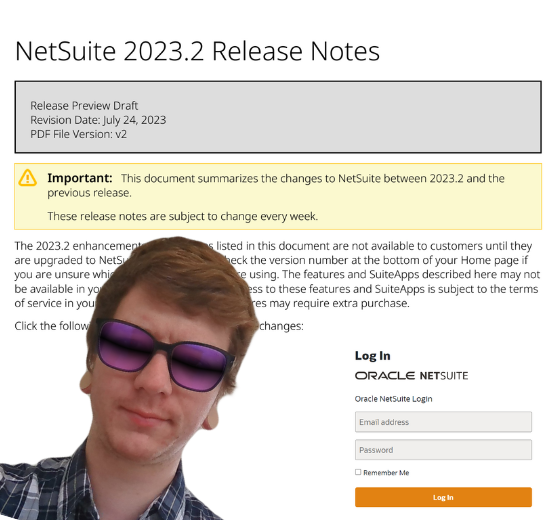The benefits of Enterprise Resource Planning (ERP) and Customer Relationship Management (CRM) technology (or DRM if we want to relate it to donors) have been widely recognised for non-profits, particularly in helping the sector overcome the many challenges faced in recent years. Remote working, fundraising event restrictions and finding new ways to reach donors in difficult economic times have been key factors for not-for-profit organisations to navigate.
For those charity organisations helping to deliver important support services by appointment, ERP and CRM technology can be truly transformational. The third sector has always had a key role to play in the delivery of services, but in the context of stretched public welfare service resources against the backdrop of an economic crisis, the role is critical, and continually evolving. So, it is clear that in order for not-for-profit organisations to meet this growing demand, technology adoption will be more of a necessity than a consideration.
At BrightBridge, we work with organisations in the third sector to help them maximise operational efficiencies that enable them to make their funds stretch further, execute better customer relationship management to engage, retain and attract donors and offer modern methods of donation payment. An example of one not-for-profit organisation we’re working with offers social, health and economic support services to individuals and communities.
With a variety of volunteers and staff helping to deliver this important support, tasks such as appointment bookings, consulting colleague diaries, reviewing client progress, accessing contact details and utilising the right methods of communication are understandably time consuming. The main goal of any not-for-profit organisation is to maximise resource to ensure service delivery is optimal – so wasted time on manual, paper-based administrative tasks is inefficient and frustrating.

We have helped this large third sector organisation integrate all its data into the Microsoft Dynamics 365 (MS D365) solution – engaging users of the service is vital for success of outcome, and a smooth delivery is key to that. Data is no longer stored disparately in multiple systems lacking integrated, meaning one source of information is always correct, can’t be mismatched and there is a lower chance of missing data across multiple records.
Smooth interaction with service users and self-serve solutions enhance engagement
When utilising a CRM/Customer Service system such as MS D365, people working for not-for-profits can easily access all user or client records in one integrated solution for a single version of the truth. Then, viewing notes on progress, communications, other key customer record information and staff availability is easy – facilitating smooth appointment booking. Automated text or email appointment confirmations, or reminders, are also sent via the system. When these processes are executed manually, it significantly reduces the available time and resource to deliver the much-needed services. From the client point of view, the process is seamless, which enhances satisfaction and engagement.
With self-serve becoming more and more of an expectation for service users, MSD365 also offers this functionality which is invaluable to organisations such as charities and NGOs delivering services. As well as the capability for staff to easily book appointments, users of the service can also go online to book their own appointments, cancel them and review their course progress online at any time. When comparing this approach to a situation where a service user may have to call the organisation, potentially leave a message to be responded to, and then diaries of various coaches or staff be consulted to find appointments, it’s easy to see how a self-serve system vastly improves the experience for the user. Plus, it creates huge efficiencies for the service provider.

Other features such as the facility to upload files and photos or live chat with a coach or programme manager are available within MSD365. In a socially distanced scenario, this would be a vital function. But even as we return to normality, and face-to-face meetings are resumed, the capability to execute some communication remotely significantly frees up resource for non-profits to help more people, thus optimising the service. Errors are also avoided with an integrated system as all records are consistent, and diary visibility for availability is always in real-time to avoid clashes or double booking.
Analytics helps the third sector maximise social impact
With all client data captured in one solution, that data can be analysed to gain valuable insights. Within MSD365 there is a Customer Data Platform (CDP) that provides the right information and advice to inform more personalised marketing. This can be incredibly useful for a charity providing a service such as courses, as it can give insights as to why a course might not be appealing to the target group, or, data can indicate interest in a particular service or area that can help charities plan when a course is proving to be popular. The rich source of insights available from the high volume of data that is captured can help charities uncover trends, as well as reveal how effectively the needs are being met.

And that’s not all… more fundamentals can be integrated
All streams of revenue and operational costs can be designed into the architecture and, once again, the analytical and intelligence capabilities of MSD365 apply. The enables leaders to focus on doing more of the activities that generate the most donations, whether that’s opening a new shop, duplicating an event or expanding on a successful marketing campaign. And when it comes to developing marketing campaigns, MSD365 is AI-enabled and can help with the design and content of materials, denoting demographics and tying up the two. It can also automate complex outreach programmed through workflows based on the actions of a current, past or potential donor, whether they’ve engaged with the charity in person, via its website or on social media. Communications can always be based on intelligence, targeted and effective, and the data from which informs the delivery team too.
Technology has provided a lifeline for the third sector in what has been a challenging landscape –. Charities that want to continue to engage, retain and attract donors and service users alike, need to give serious consideration to technology adoption sooner rather than later.
If you’re interested in learning more about how Microsoft Dynamics 365 could help your charitable organisation maximise its offering, get in touch now to book a discovery call with a member of our team, such as one of Microsoft Solution Architects, Dylan.
Keep reading

What is a NetSuite implementation partner? How do you choose one?

Technology fit for total customer service in 2024

Retail and wholesale distribution: how to improve supply chains

Ditching Sage 1000: what you need to know from businesses that have done it

6 ways AI-ready Microsoft Dynamics 365 helps chartered associations serve members

6 retail and wholesale distribution challenges and how NetSuite solves them

The most exciting features in Microsoft Dynamics 365 2023 Release Wave 2

How to manage a new NetSuite Release: one expert's update process

What’s in NetSuite Release 2023.2?

